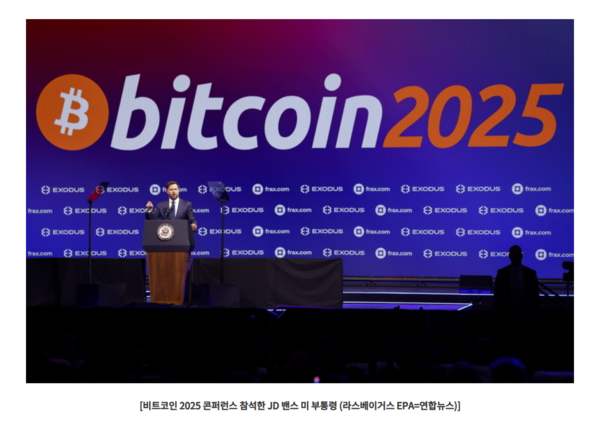
JD Vance, the US Vice President, officially formalized a pro-cryptocurrency policy by stating that "the Biden administration's cryptocurrency suppression has ended." He emphasized stablecoins as a means that "does not threaten but rather strengthens the dollar" and presented regulatory relaxation and institutionalization as key tasks.
Vice President Vance declared the end of the Biden government's informal financial regulation strategy, 'Operation Choke Point 2.0', during a speech at the 'Bitcoin 2025 Conference' in Las Vegas on the 28th (local time).
'Choke Point 2.0' was a regulatory practice that pressured financial institutions like banks to block transactions with cryptocurrency companies, which had long been a source of industry discontent.
Vance presented three core digital asset policy principles of the Trump administration: ▲abolition of hostile regulations ▲legislation of stablecoins (GENESIS bill) ▲establishment of cryptocurrency market framework. He stated, "The GENESIS bill will bring stablecoin activities into the US and ultimately strengthen the status of the dollar."
The GENESIS bill prepared by the US Senate actually clarifies stablecoin issuance requirements and reserve standards, and mandates anti-money laundering (AML) compliance. Some assess that this could institutionalize stablecoins as part of the financial infrastructure.
Vice President Vance defined cryptocurrency's role as a "tool protecting citizen freedom" and a "hedge against bad policies, inflation, and discrimination." Additionally, he explained the background of dismissing Gary Gensler, former SEC chairman, who "attacked financial democratization under the pretext of consumer protection".
Previously, former President Donald Trump directly attended the 'Bitcoin 2024 Conference' and garnered industry support by calling himself a "pro-Bitcoin president". Vance's remarks are seen as continuing this approach, with the Republican Party's cryptocurrency policy becoming prominently featured in the election landscape.






